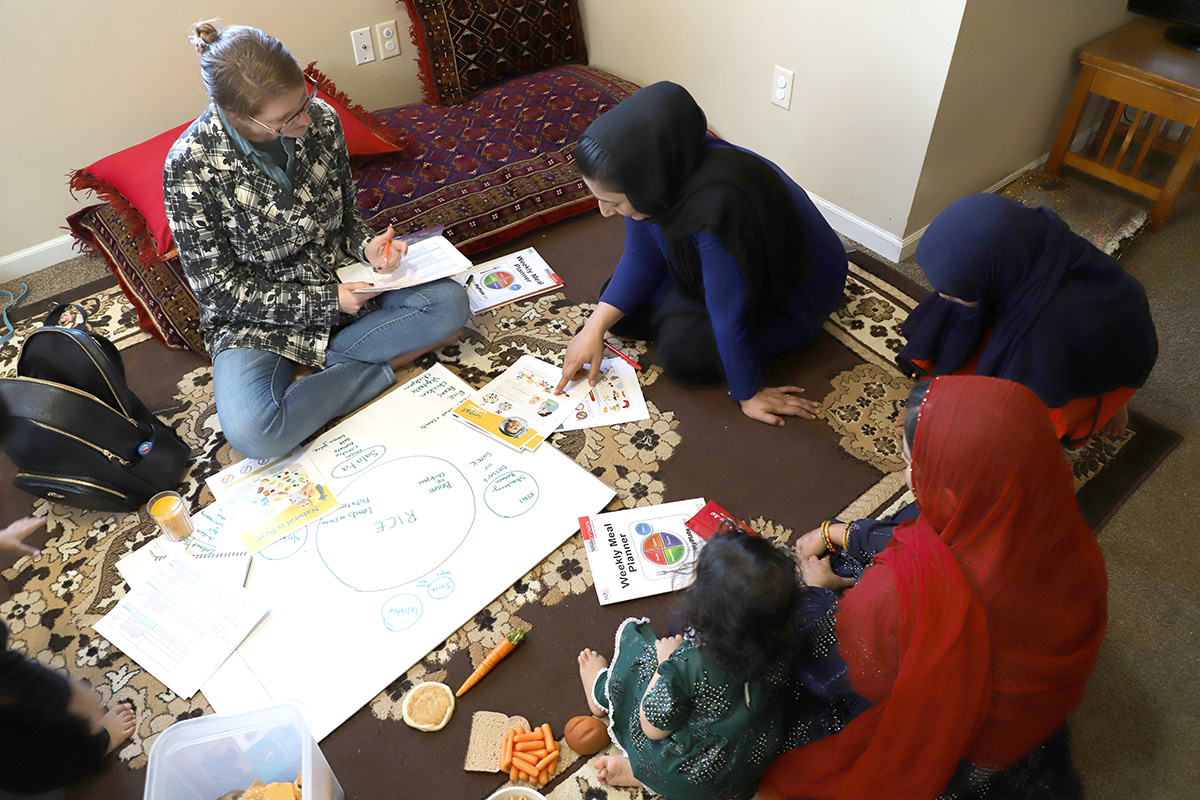
By Emily Gratopp, MS, ICF ACC, CPCC, ASCM-CPT, Extension Educator in Lancaster County
Lincoln has been designated as a Welcoming City for immigrants and refugees and is home to 30,000 refugees and immigrants from over 150 different countries (see Lincoln/Lancaster County Welcoming and Belonging Plan, https://welcominglnk.org).
HEALTH OF REFUGEES AND IMMIGRANTS
Refugee and immigrant families have more health disparities than the general United States population. New Americans, especially refugees, have higher rates of hypertension, high cholesterol, diabetes and vitamin deficiencies (Kumar, Beeler, Seagle, & Jentes, 2021). Lincoln’s immigrant and refugee families are no exception to these statistics. Nebraska Extension’s Nutrition Education Program (NEP) has served New Americans for several years with nutrition, physical activity and healthy living education and has witnessed these increased rates of chronic health conditions among program participants.
NUTRITION EDUCATION FOR NEW AMERICANS
In the last few years, due to hiring dedicated, diverse staff and specialized grants, NEP has increased capacity and effectiveness for serving New Americans. Most recently, since August 2023, upon hiring Zahraa Rida and in partnership with Lincoln Culture Centers, NEP has taught nearly 300 New Americans with over 2,000 hours of nutrition education classes. In addition to nutrition education, Zahraa has collaborated with the Nebraska Department of Education and other culture experts to engage families in a process of identifying and developing recipes that reflect Afghan culture for integration into public school lunches. Additionally, NEP is addressing chronic disease concerns with New Americans by incorporating hypertension-specific classes and equipping individuals with blood pressure monitors.
CULTURALLY RESPONSIVE EDUCATION
The relationships formed from NEP classes with New Americans and partnership organizations have enabled a new project NEP is leading, with support from the National Association of City and County Health Organization and the Centers for Disease Control and Prevention, that focuses on developing culturally responsive nutrition education materials for infants and toddlers for Middle Eastern cultures and languages. The project emphasizes a community-driven approach, so it includes collaborating with and providing monetary support to eight Middle Eastern families and six cultural liaisons to develop educational resources.
New American participants have shown interest and dedication to learning about nourishing their families with healthy food while preserving their cultural eating patterns. The nutrition education classes and special projects have been a journey of co-learning and discovery to blend tradition with wellness.
“Through their guidance, I’ve gained knowledge about nutrition, and I’ve also found a community of women who share similar experiences and obstacles.” — NEP participant